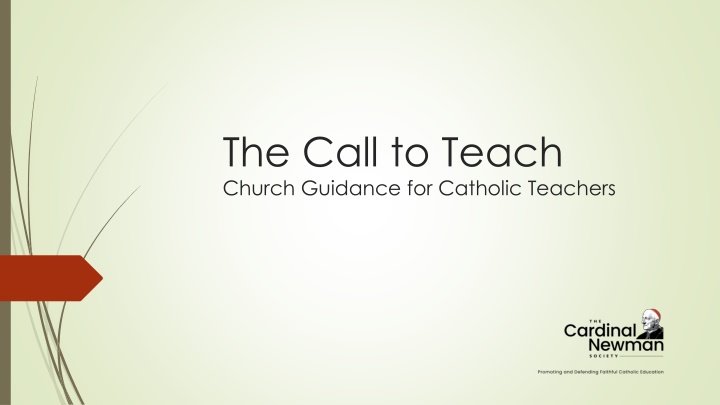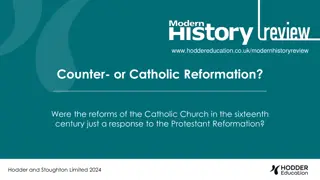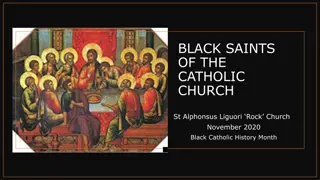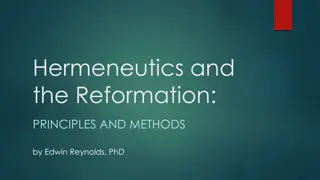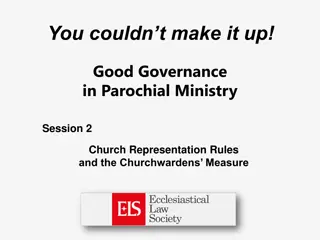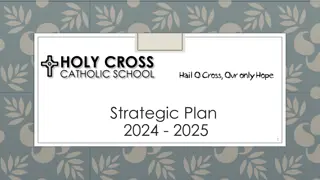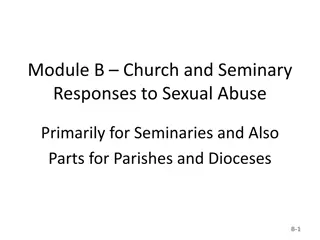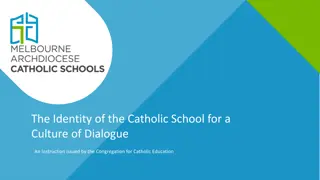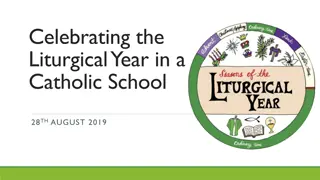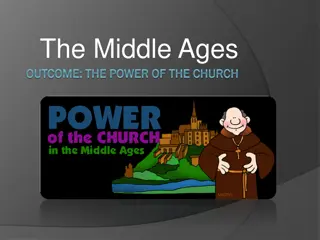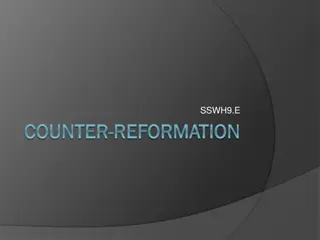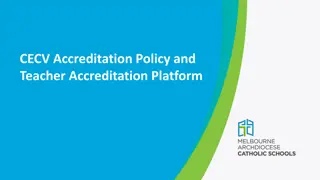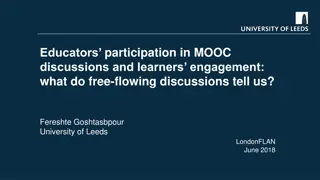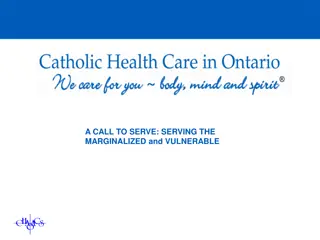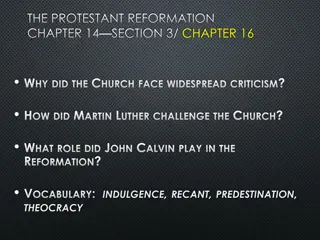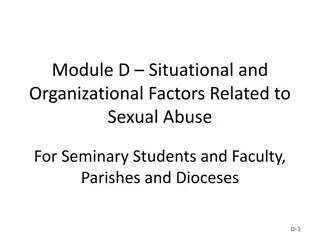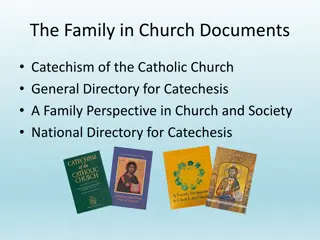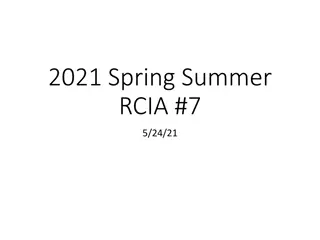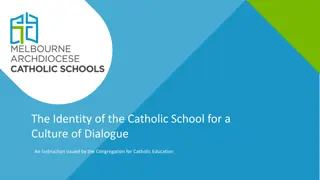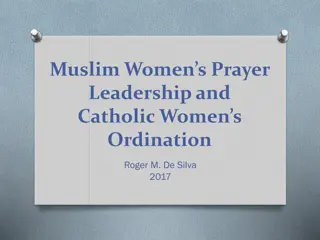The Call to Teach: Church Guidance for Catholic Educators
Explore the significance of Catholic education, mission, vocation, and faith formation for teachers in fulfilling their roles within the Church. Delve into the core values and responsibilities that shape the educational journey within the Catholic faith.
Download Presentation

Please find below an Image/Link to download the presentation.
The content on the website is provided AS IS for your information and personal use only. It may not be sold, licensed, or shared on other websites without obtaining consent from the author.If you encounter any issues during the download, it is possible that the publisher has removed the file from their server.
You are allowed to download the files provided on this website for personal or commercial use, subject to the condition that they are used lawfully. All files are the property of their respective owners.
The content on the website is provided AS IS for your information and personal use only. It may not be sold, licensed, or shared on other websites without obtaining consent from the author.
E N D
Presentation Transcript
The Call to Teach Church Guidance for Catholic Teachers
Since the Christian vocation is a call to transform oneself and society with God s help, the educational efforts of the Church must encompass the twin purposes of personal sanctification and social reform in light of Christian values. (To Teach as Jesus Did, 1972, 7) I. The Teacher and the Mission of Catholic Education
I. Questions for Reflection Comprehension Questions 1. From where does a Catholic school derive its mission? 2. What are the aspects of a Catholic school s mission? 3. Who is involved in fulfilling the mission of Catholic education? Discussion Questions 1. How is the mission of Catholic education different from that of public education? 2. Which aspects of the mission do we accomplish well? Which aspects can we improve upon?
One specific characteristic of the educational profession assumes its most profound significance in the Catholic educator: the communication of truth. For the Catholic educator, whatever is true is a participation in Him who is the Truth; the communication of truth, therefore, as a professional activity, is thus fundamentally transformed into a unique participation in the prophetic mission of Christ, carried on through one s teaching. (Lay Catholics in Schools: Witnesses to Faith, 1982, 16) II. The Teacher and Vocation
II. Questions for Reflection Comprehension Questions 1. What is the difference between a vocation and a profession? 2. What specific commitment is asked of Catholic school teachers and why is this important? Discussion Questions 1. What are the characteristics of possessing special qualities of mind and heart? 2. How is being a Catholic educator different from other teaching professions?
The preparation and ongoing formation of teachers is vital if our schools are to remain truly Catholic in all aspects of school life [to] allow the Gospel message and the living presence of Jesus to permeate the entire life of the school community and thus be faithful to the school s evangelizing mission. (Renewing Our Commitment to Catholic Elementary and Secondary Schools in the Third Millennium, 2005, p. 10) III. The Teacher and Faith Formation
III. Questions for Reflection Comprehension Questions 1. What is the importance of solid spiritual and professional development for teachers? 2. How does a teacher provide integral formation for students? Discussion Questions 1. Why is spiritual formation important for teachers? 2. Are all professional development programs applicable for Catholic education? Are some programs better than others? How so?
Among all the members of the school community, teachers stand out as having a special responsibility for education. Through their teaching- pedagogical skills, as well as by bearing witness through their lives, they allow the Catholic school to realize its formative project. In a Catholic school, in fact, the service of the teacher is an ecclesiastical munus and office. (The Identity of the Catholic School, 2022, 45) IV. The Teacher and Lived Witness
IV. Questions for Reflection Comprehension Questions 1. What does the Church say about the witness of the Catholic teacher in education? 2. Is this witness only expected during school hours? Only by Catholics? 3. What does the service of the teacher as an ecclesiastical munus and office mean? Discussion Questions 1. What conduct of the teacher is considered moral behavior ? 2. How does the importance of sound moral witness extend to all Catholic school employees, including coaches, counselors, librarians, and support staff?
A variety of pedagogical theories exist; the choice of the Catholic educator, based on a Christian concept of the human person, should be the practice of a pedagogy which gives special emphasis to direct and personal contact with the students. Lay Catholic in Schools: Witnesses to Faith, 1982, 21) V. The Teacher and Catholic Culture
V. Questions for Reflection Comprehension Questions 1. How should we understand the task of "critical, systematic transmission of culture in the light of faith ? 2. What pedagogy is appropriate to teaching culture in Catholic education? 3. What is the intended effect of using this type of pedagogy? Discussion Questions 1. What is culture? What is Catholic culture? 2. How is culture transmitted in Catholic education? 3. What are some critical elements of a Catholic worldview?
